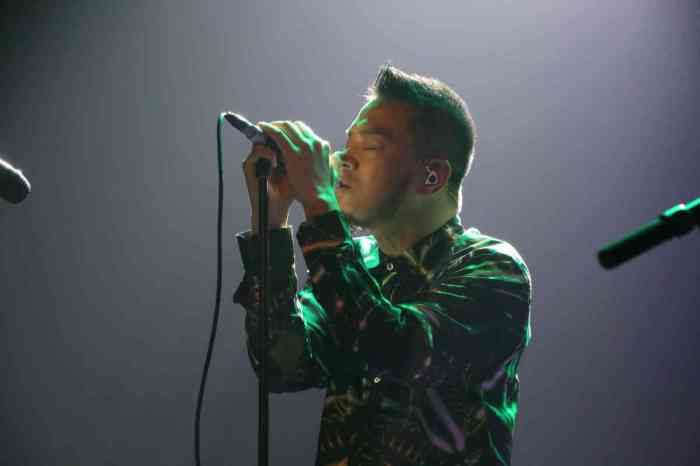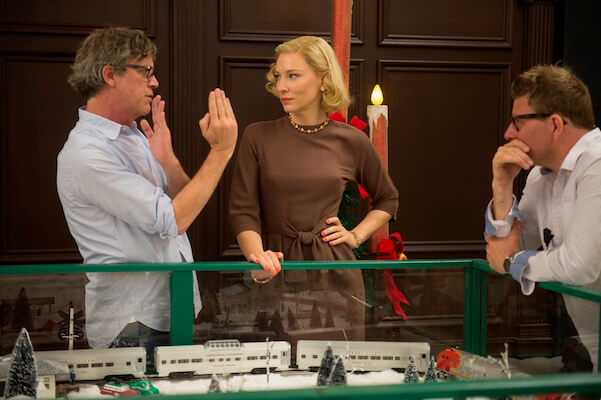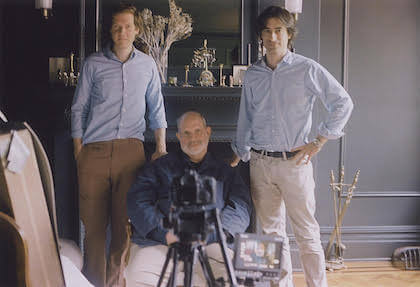Tony Leung is Wong Kar-wai's “The Grandmaster.” | THE WEINSTEIN COMPANY
Hong Kong director Wong Kar-wai’s “The Grandmaster” is several movies in one. Basically, it combines martial arts with historical drama. This isn’t a particularly original idea: films from Tsui Hark’s “Once Upon a Time in China” to Zhang Yimou’s “Hero” have melded the two, usually with a heaping of Chinese nationalism.
From 1991 to 2000, Wong was one of the giants of world cinema, but the spontaneity of some of his ‘90s films has exited his work. He came up with the idea of “The Grandmaster,” a biopic of kung fu legend Ip Man (Tony Leung), a decade ago. The production took three years, as the actors were trained in martial arts.
I’m not even sure exactly what I’m judging, as the version of the film I saw ran approximately 110 minutes. That’s more than 10 minutes shorter than the listed running time of the American cut on the Internet Movie Database, itself seven minutes less than the version of “The Grandmaster” released in Hong Kong. The film seems structurally awkward, initially racing through World War II in five minutes, then returning for a powerful extended flashback from another character’s perspective.
Long gestation doesn’t help Wong Kar-wai’s latest
Starting in Foshan, China in the mid 1930s, “The Grandmaster” begins with Ip content with his life as a family man and a master of the Wing Chun school of kung fu. He takes on challengers (male and female) in battles that have the gentlemanly aura of leisurely poker games, even if they look more violent. The film then goes into flashbacks about his childhood and the early stages of his marriage to Zhang Yongcheng (Song Hye-kyo.)
After a battle with Gong Yutian (Wang Qingxiang), a kung fu master from northern China, Ip is contacted by Gong’s daughter Gong Er (Ziyi Zhang), who starts to become attracted to him. The story shifts to her point of view, as she lives through the brutal Japanese occupation of China in the late ‘30s. Meanwhile, Ip’s two daughters die of starvation, and he winds up emigrating to Hong Kong after World War II. He and Gong Er, now a doctor, run into each there.
Wong has never really made a film like “The Grandmaster” before. His 1994 “Ashes of Time,” which had a similarly elongated production history, comes closest, but it’s far artier. Wong’s style has been appropriated by commercials, music videos, and other filmmakers, so much so that when he uses a stuttering effect on the editing of “The Grandmaster,” spectators may think he’s copying Robert Rodriguez’s “Sin City,” as a friend pointed out. Like Terence Malick, Wong runs the risk of self-parody simply by being himself.
His images are beautiful, but there’s something wearying about the constant need to fiddle with camera speeds and blur the cinematography, fetishizing even the simplest shots. He also rarely allows the performers to show any real athleticism, cutting the kung fu scenes after a second or two.
At its most ambitious, one could say that “The Grandmaster” tries to synthesize Tsui Hark’s martial arts opus, “The Blade,” with Hou Hsiao-hsien’s exploration of Taiwanese history, “The Puppetmaster,” except that Wong examines the pain of exile for mainland Chinese émigrés on Hong Kong. Unfortunately, “The Grandmaster” is far more conventional than either Tsui or Hou’s masterworks — or Wong’s own best films. It only really comes to life when it takes the spotlight away from Ip. The second half concentrates on Gong, offering the film’s most engaging fight scene in an extended battle in the snow alongside a moving train. Her story seems to matter in a way that Ip’s doesn’t, perhaps because we know that Ip turned out alright in the end. After all, many spectators, especially in Asia, are going into “The Grandmaster” knowing that Ip lived to train Bruce Lee. He's also the subject of another popular series of Hong Kong films currently in production, directed by Wilson Yip.
Wong went back and re-edited “Ashes of Time,” whose narrative is almost incomprehensible on a single viewing, into “Ashes of Time Redux,” which got a much wider release in the US. It’s impossible to know if the cuts made to “The Grandmaster” were the director’s choice, the distributor’s (the Weinstein Company is notorious for taking the scissors to Asian films), or a combination of the two. However, it’s undeniable that the film feels lopsided.
I know someone who fell asleep during the first half, and frankly, I can understand why. I’m puzzled by some of the editing choices, such as the total disappearance of Ip’s wife from the second half of the film. Whatever the rationale behind them, I miss the Wong Kar-wai who could turn out a film like “Chung King Express” or “Fallen Angels” in six months. Even at its best, “The Grandmaster” suffers from bloat. Spending years on a film doesn't bring out the director's best qualities.
THE GRANDMASTER | Directed by Wong Kar-wai | In Cantonese and Mandarin with English subtitles | The Weinstein Company | Opens Aug. 23 | Angelika Film Center, 18 W. Houston St. at Mercer St. | angelikafilmcenter.com








